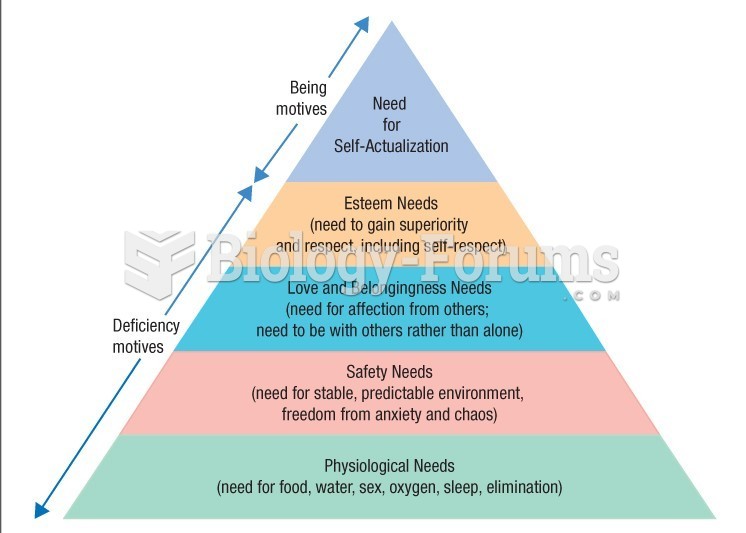|
|
|
In 1844, Charles Goodyear obtained the first patent for a rubber condom.
As many as 28% of hospitalized patients requiring mechanical ventilators to help them breathe (for more than 48 hours) will develop ventilator-associated pneumonia. Current therapy involves intravenous antibiotics, but new antibiotics that can be inhaled (and more directly treat the infection) are being developed.
It is difficult to obtain enough calcium without consuming milk or other dairy foods.
Signs of depression include feeling sad most of the time for 2 weeks or longer; loss of interest in things normally enjoyed; lack of energy; sleep and appetite disturbances; weight changes; feelings of hopelessness, helplessness, or worthlessness; an inability to make decisions; and thoughts of death and suicide.
Certain rare plants containing cyanide include apricot pits and a type of potato called cassava. Fortunately, only chronic or massive ingestion of any of these plants can lead to serious poisoning.
 Colostomy. Alternate versions of colostomy are illustrated, each of which creates one or more new op
Colostomy. Alternate versions of colostomy are illustrated, each of which creates one or more new op
 Upsetting the entire social order, the French Revolution removed the past as a sure guide to the ...
Upsetting the entire social order, the French Revolution removed the past as a sure guide to the ...





